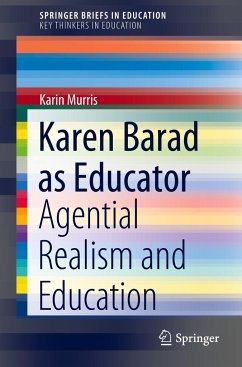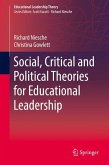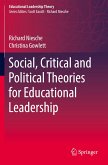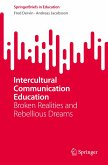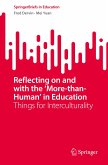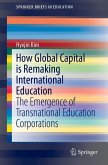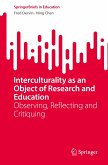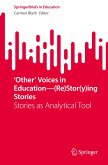This book is about becoming touched and moved by Karen Barad's agential realism. Karen Barad as Educator is not biographical. It is not about Barad. There is much to be learned about teaching and education research through the human and other-than-human narrative characters in Barad's writings and way of life. Reading this book is about becoming entangled with, and being inspired by, a passionate yearning for a radical reconfiguration of education in all its settings and phases (e.g., day-care centres, schools, colleges, universities, but also homes, museums or therapy rooms). This book will appeal to lecturers, teachers, artists, therapists, parents and grandparents, funders of education research, organisers of educational events, as well as detached youth workers. In short, this book will speak to anyone interested in the 'what' and the 'how' of educational encounters and who is interested in alternatives to the dominant neoliberal national curricula, educational policies and humanist teaching, research, and conference agendas. The book aims to offer a gripping account for educators to be inspired by the invigorating and elusive philosophy of agential realism with a specific focus on iterative performative practices that profoundly matter to what counts as knowledge, teaching, learning and response-able education science.
"This is a brilliant book, which I enjoyed reading and would highly recommend to anyone interested in finding alternatives to neoliberal curricula and humanist educational agendas. This book exemplifies that each intra-action with humans, nonhumans, and other-than-human matters ... . With the invitation to read non-linearly ... this is a book to read again and again knowing no two readings will be the same." (Mary Catherine Garland, Journal of Education for Teaching JET, April 14, 2024)
"This book is an ideal entry point for reading groups who are interested in slowing down to intra-act ... with/along agential realism, posthumanism (and the posthuman condition), and (new) feminist materialism/s. ... Reading groups and scholars engaging with this book might particularly be interested in further experimenting and theorising Murris' plea for de/colonisation by adopting the diffractive methodology in teaching, learning, assessment, and education research." (Petro du Preez, CriSTaL - Critical Studies in Teaching & Learning, Vol. 11 (1), 2023)
"A significant contribution to engagement with, and understanding of, Barad's agential realism. ... Murris' book invites the reader in and provides possibilities and opportunities for participating in an agential realist approach to teaching and learning. ... Karen Barad as educator: Agential realism and education engages with this undertaking, and also reconsiders and reconfigures teaching and learning in the process. I forone will be rereading Murris' book, with each reading no doubt co-generating different patterns of understanding." (Shae L. Brown, Australian Journal of Environmental Education, November 28, 2022)
"This book is an ideal entry point for reading groups who are interested in slowing down to intra-act ... with/along agential realism, posthumanism (and the posthuman condition), and (new) feminist materialism/s. ... Reading groups and scholars engaging with this book might particularly be interested in further experimenting and theorising Murris' plea for de/colonisation by adopting the diffractive methodology in teaching, learning, assessment, and education research." (Petro du Preez, CriSTaL - Critical Studies in Teaching & Learning, Vol. 11 (1), 2023)
"A significant contribution to engagement with, and understanding of, Barad's agential realism. ... Murris' book invites the reader in and provides possibilities and opportunities for participating in an agential realist approach to teaching and learning. ... Karen Barad as educator: Agential realism and education engages with this undertaking, and also reconsiders and reconfigures teaching and learning in the process. I forone will be rereading Murris' book, with each reading no doubt co-generating different patterns of understanding." (Shae L. Brown, Australian Journal of Environmental Education, November 28, 2022)

